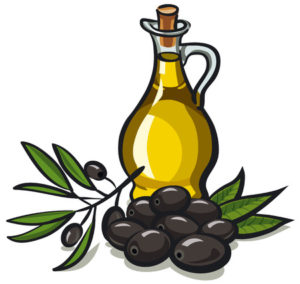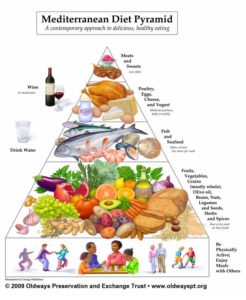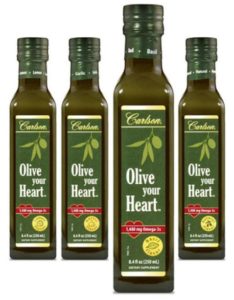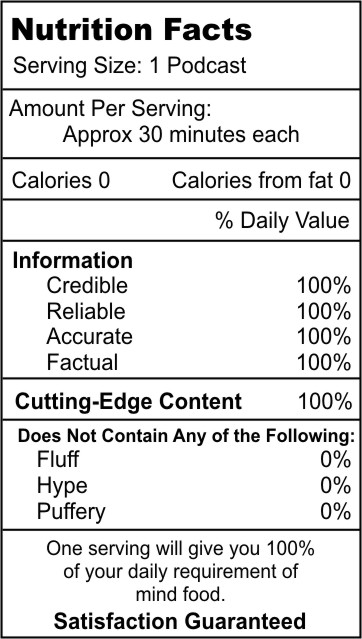Podcast: Play in new window | Download (Duration: 46:46 — 85.9MB)
The Mediterranean Diet and Health: Proven Benefits in Countless Studies
 We have all heard that the Mediterranean diet is one of the healthiest diets. It is one of the world’s regional diets that seems to provide benefits to health and longevity. In this interview with Jolie Root, we will discuss the Mediterranean diet and contrast that to the standard American diet (SAD). One of the key elements of the Mediterranean diet is the use of particular fats in the diets. Olive oil provides the omega-9 fatty and fish from the sea and grazing animals provide the critical omega-3. Omega-6 fatty acids from nuts and seeds were consumed in their natural forms as foods and not as refined oils as we have in the U.S.
We have all heard that the Mediterranean diet is one of the healthiest diets. It is one of the world’s regional diets that seems to provide benefits to health and longevity. In this interview with Jolie Root, we will discuss the Mediterranean diet and contrast that to the standard American diet (SAD). One of the key elements of the Mediterranean diet is the use of particular fats in the diets. Olive oil provides the omega-9 fatty and fish from the sea and grazing animals provide the critical omega-3. Omega-6 fatty acids from nuts and seeds were consumed in their natural forms as foods and not as refined oils as we have in the U.S.
Jolie and I will introduce a novel oil for your tabletop; Olive Your Heart. This is a blend of olive oil sourced from Crete and tasteless Norwegian fish oil. This is one delicious way to add the important omega fats to your diet. If you use olive oil to dress salads or in dips then you can easily get additional omega-3 at the same time. This is a solution for those who don’t like capsules. You get the benefits of the two oils in four different flavors, such as garlic or basil. You’ll find these usually in health food stores and online.
The sad story for the American diet is the huge shift to refined sugars, refined grains, refined grain and seed oils which provide many calories but are largely nutrient deficient. We also consume artificial chemicals as a normal part of our diet. It is no wonder that we have the health issues that overwhelm us. We wonder why we are sick? We turn to pharmaceutical drugs as if they can cure our diseases. The basic truth here is that good health is not possible without good nutrition. Traditional diets provide a wide range of nutrients that come from the foods of the earth. Refined and chemicalized foods do not nourish the body and cannot provide the building blocks of good health.
If a person is unwilling to take responsibility for their food and diet choices then not much can be done. Supplements can help, but supplements are not a replacement for eating quality food, prepared well and served with love. The challenge for many people is making sense of the nutritional information that is available to them. This is especially true when it comes to diets. I have a wonderful resource to recommend to you if you want to learn more about the Mediterranean diet: Oldwaypt.org. The following excerpts are from Oldways and you will learn much more by following the links to their site.
Mediterranean Diet Pyramid
“In 1993 Oldways created the Mediterranean Diet Pyramid – in partnership with the Harvard School of Public Health and the WHO – as a healthier alternative to the USDA’s original food pyramid. Today the Mediterranean Diet is more popular than ever, with new research every month documenting its benefits.
Starting at the base of the pyramid, you’ll find an emphasis on activity and social connections. Moving upward, you’ll see the core foods that you’ll shop for and enjoy every day: whole grains, fruits, vegetables, beans, herbs, spices, nuts and healthy fats such as olive oil. Fish and seafood are typically eaten at least twice a week, and dairy foods – especially fermented dairy like yogurt and traditional cheese – are eaten frequently in moderate portions. Eggs and occasional poultry are also part of the Mediterranean Diet, but red meat and sweets are rarely eaten. Water, and wine (for those who drink) are typical beverages.
Getting Started with the Mediterranean Diet: 8 Steps
Embracing the Med Diet is all about making some simple but profound changes in the way you eat today, tomorrow, and for the rest of your life.
- Eat lots of vegetables. Vegetables are vitally important to the fresh tastes and delicious flavors of the Mediterranean Diet.
- Change the way you think about meat. If you eat meat, have smaller amounts.
- Enjoy some dairy products. Eat Greek or plain yogurt, and try smaller amounts of a variety of cheeses.
- Eat seafood twice a week. Fish such as tuna, herring, salmon, and sardines. Shellfish including mussels, oysters, and clams have similar benefits.
- Cook a vegetarian meal one night a week. Down the road, try two nights per week.
- Use good fats. Include sources of healthy fats in daily meals
- Switch to whole grains. Whole grains fuller, nuttier taste and extra fiber keep you satisfied for hours.
- For dessert, eat fresh fruit.
Learn more about the health benefits and the “how-to” of the traditional Mediterranean Diet, with the Welcome to the Mediterranean Diet brochure. This trifold brochure includes the 8 simple steps above, plus more – to introduce you to the Mediterranean Diet. End excerpt.
 Oldways is a consumer friendly site where you can explore the science of the benefits of the Mediterranean diet. They reference over 150 studies on the Mediterranean diet. They dispense with the jargon and help you under the context of the studies. They also have similar resources for other traditional diets such as Asian, African and Latin American. These are the diets that have sustained humans for thousands of years. Oldways is a resource rich site that will help you understand and appropriate the best from all of these world traditions.
Oldways is a consumer friendly site where you can explore the science of the benefits of the Mediterranean diet. They reference over 150 studies on the Mediterranean diet. They dispense with the jargon and help you under the context of the studies. They also have similar resources for other traditional diets such as Asian, African and Latin American. These are the diets that have sustained humans for thousands of years. Oldways is a resource rich site that will help you understand and appropriate the best from all of these world traditions.
One thing that becomes abundantly clear to me as I research the traditional diets of the world is the commonality of the benefits of eating wholesome nutritious foods no matter what the tradition or culture. Traditional diets are rich in the natural compounds upon which health is built. A diet that is striped of its nutrients cannot provide health. Foods and supplements nourish the body. That is how nutrients exert their benefits to the structure and function of the human body. Eat better to be better.
- Promotes cardiovascular health and overall wellness
- Blends premium Greek extra virgin olive oil with omega-3 marine oil
- Provides 1,480 mg of omega-3s per serving
- Thinly textured and aromatic natural flavor
- Freshness, potency, and purity guaranteed
 For optimal heart health, the American Heart Association (AHA) recommends substituting good fats (monounsaturated and polyunsaturated) for bad fats (saturated and trans). An easy way to do this is by choosing a healthy oil, such as olive oil. Blends are also a great choice. Olive your Heart may be the best heart smart choice, combining the cardiovascular benefits of olive oil and marine sourced omega-3s.
For optimal heart health, the American Heart Association (AHA) recommends substituting good fats (monounsaturated and polyunsaturated) for bad fats (saturated and trans). An easy way to do this is by choosing a healthy oil, such as olive oil. Blends are also a great choice. Olive your Heart may be the best heart smart choice, combining the cardiovascular benefits of olive oil and marine sourced omega-3s.
About Jolie Root
Jolie is the Senior Nutritionist/Educator at Carlson Laboratories. She began as a natural products retailer who evolved into a career in education in the health sciences. She is a nutritionist and a nurse. She understands both the science and the practical application of good nutrition for health. Jolie hosts a weekly radio show called Food for Thought which is heard in New York, Florida and online.














{ 0 comments… add one now }
{ 1 trackback }